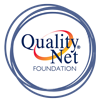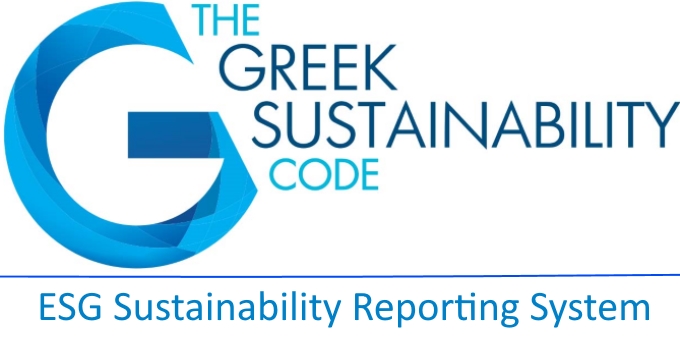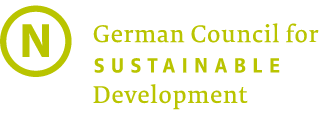Principia
GENERAL
Principia
Company Profile
Enel Green Power is present in Greece with 308 MW of installed wind capacity, hydro and solar power. Enel Green Power Hellas is also responsible for two wind parks in Bulgaria of total installed capacity of 42 MW, as well as a series of photovoltaic stations and wind parks in Romania of total installed capacity of 534 MW.
Enel Green Power Hellas incorporates in its strategy and business practices the principles of sustainable development and corporate social responsibility, placing the outmost emphasis on safety at work, as well as contributing to the well being of its employees and the neighboring local communities.
Management Message
“We want to lead the transition towards a more sustainable and environmentally friendly future building on the foundations of safety, operational excellence and innovation, respecting ethics, embracing diversity and contributing to the well-being of our employees and surrounding communities”.
George Papadimitriou, Head of Rest of Europe and North Africa

| ORGANIZATION NAME:
|
Principia |
| SECTOR:
|
Utilities |
| ORGANIZATION TYPE:
|
51-150 |
| ANNUAL TURNOVER:
|
Πάνω από 50 εκ. ευρώ |
| COMPANY INTRO:
|
Principia is a producer and developer of renewable energy projects in Greece. The business manages a diversified portfolio of wind, solar, hydropower and integrated battery storage technologies to help accelerate Greece’s transition to a cleaner and more sustainable future. As of March 2024, its portfolio consists of 59 plants under operation with a total installed capacity of 482MW, and an additional 7 solar parks under development with a total capacity of 95MW.
Principia was established in March 2024 by its shareholders, Enel SpA and by a fund managed by Macquarie Asset Management, having previously begun operations in 2008 as part of Enel Green Power in Greece.
To find out more about Principia, please visit www.principia-energy.com, as well as the company’s LinkedIn and Facebook profiles.
|
| CONTACT DETAILS:
|
Greece
4, Gravias Str. 151 25 Maroussi
Athens
Phone: +30 211 1808 500
Email: https://principia-energy.com/
|
COMFORMITY STATEMENT
Principia
It is a certificate which is given by the QualityNet, on the firm'sof compliance with the reference framework of the Greek Sustainability Code. Confirms the compliance level and together with the Documentation table which accompanies, presents the response range of the enterprise to the criteria of Sustainable Development and Responsible Entrepreneurship. The Declaration of Conformity can be used as a legal document as essentially shows the range of the Organisations' approach to Sustainable Development and Responsible Entrepreneurship issues. Download the Organisations' Declaration of Conformity.
STRATEGY
The criteria of this section form the basis of the Sustainability Code. The Organization answers how familiar it is with the challenges, opportunities and risks that are associated with its core activities in terms of Sustainable Development and Corporate Responsibility and which its activity should face up to. The Organization answers if it has a plan for how it wish to handle them in the medium and long term, if it sets clear goals – derived from them – to address social and environmental challenges in a proactive way and if it is already keeping an eye on its entire value chain – from the extraction of raw materials to disposal. By reporting in detail on the following four criteria, the Organization will be laying the foundation for satisfying the Sustainability Code and it will be preparing the ground so it will be able to handle all further topics well, too.
1. Strategic, Analysis & Action
ADMINISTRATIVE PRACTICES
Attached Files: There are no files
2. Materiality
REFERENCE
Attached Files: There are no files
3. Objectives
REFERENCE
Attached Files: There are no files
4. Management of Value Chain
ADMINISTRATIVE PRACTICES
Attached Files: There are no files
PROCEDURES
The following six criteria describe how the Organization efficiently and systematically manages Sustainable Development and Corporate Responsibility. This ranges from questions such as who is responsible and whether there are rules and processes that guide the work to whether key data exist which make any progress and developments visible. The Organization answers if there are incentives – material or non-material ones– that motivate the executives and employees to steadfastly pursue sustainable development and corporate responsibility targets, if the Organization also attends to the opinion of groups outside its activity who have identifiable interests in its development and if it is taking into consideration the demands of sustainable development and corporate responsibility when it improves products or services.
5. Responsibility
6. Rules & Processes
ADMINISTRATIVE PRACTICES
Attached Files: There are no files
7. Monitoring
ADMINISTRATIVE PRACTICES
Attached Files: There are no files
8. Incentive and reward systems for Sustainable Development
9. Stakeholder Engagement
ADMINISTRATIVE PRACTICES
Attached Files: There are no files
10. Product Responsibility and Innovation
ADMINISTRATIVE PRACTICES
Attached Files: There are no files
ENVIRONMENT
The questions in this section focus on the environmental aspects of Sustainable Development and Corporate responsibility. The Organization has to answer if it has a good overview of what natural resources it uses and to what extent. If he has set goals to cut this consumption and how it aims to achieve them. If it you balances its greenhouse gas emissions and if it has formulated goals for their reduction targets.
11. Usage of Natural Resources
ADMINISTRATIVE PRACTICES
Attached Files: There are no files
12. Resource Management
13. Climate-relevant emissions
REFERENCE
Attached Files: There are no files
SOCIETY
The seven criteria of this section deal with the social issues of Sustainable Development and Corporate Responsibility that are relevant to an Organization – starting with the questions about whether the Organization respects basic employment rights; how it deals with the issues of equal opportunities, health and the work-life balance; and how it helps to make and keep the workforce employable in the face of demographic changes. Aspects that are also significant are human rights in the supply chain, the role of the Organization in the region, and whether and how it tries to influence political decisions. Finally, the Organization is asked to explain what it is doing to counter the risk of bribery.
14. Employment Rights
ADMINISTRATIVE PRACTICES
Attached Files: There are no files
15. Equal Opportunities
ADMINISTRATIVE PRACTICES
Attached Files: There are no files
16. Qualifications
17. Human Rights in the supply chain
ADMINISTRATIVE PRACTICES
Attached Files: There are no files
18. Corporate Citizenship
ADMINISTRATIVE PRACTICES
Attached Files: There are no files
19. Initiatives and Political Influence
20. Corruption prevention and alleviation









